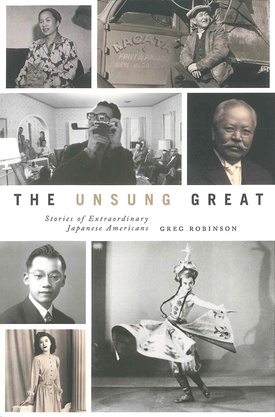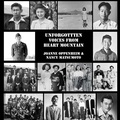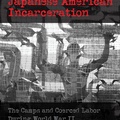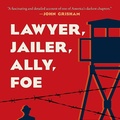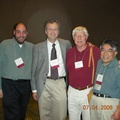This is the second of two outstanding books by eminent historian and journalist Greg Robinson consisting primarily of his “The Great Unknown and the Unknown Great” columns in the San Francisco-based Nichi Bei Weekly. In reviewing for the NBW the first book, The Great Unknown: Japanese American Sketches, published by the University Press of Colorado in 2016, I explained that its 10 chapters encompassed the “‘unknown’ activities and/or achievements of selected noteworthy individuals.” As for the University of Washington Press volume here under review, which also includes postings on Discover Nikkei, the Los Angeles-based Japanese American National Museum’s blog, among several other venues, its eight thematic chapters are devoted to the same general objective as its predecessor.
As Robinson sets forth in his masterful introduction, the themes of his chapters, a half-dozen of which are co-authored, are not only diverse in content but also consistently treat understudied aspects of the Japanese American past: mixed-race Japanese American families; Japanese American literature; political activism of the Nisei and their quest for civil rights and social justice; Nikkei creative artists and their respective productions; Japanese American queer history; and non-West Coast Japanese American populations. Even Robinson’s two chapters focused on the much-studied World War II era are given over to atypical Nikkei happenings, on the one hand, and on the other hand, to the stories of those humane non-Nikkei who provided support for Japanese Americans during their incarceration in American-style concentration camps.
In the nearly quarter of a century that I have been in contact with Greg Robinson, he continues to amaze me anew. A professor of history at the L’Université du Québec à Montréal, where he teaches courses in the French language, he is a prolific writer of books, most of them relating to some dimension or other of the Japanese American historical experience. While these works are very well-researched and deeply rooted in a wide variety of primary and secondary sources, they are expressed in terms that are comprehensible by a general readership as against one comprised exclusively by other academicians. Even though Robinson is attuned to new theoretical and methodological breakthroughs in the discipline of history, he opts, consistent with his background in journalism, to seamlessly incorporate them into an eloquent narrative style that places a premium on powerful and consequential storytelling.
Since The Unsung Great covers so much territory in its pages, which readers of the volume need to ponder in their own way, I will restrict myself here to highlighting what grabbed my attention when consuming its abundant contents. First, Robinson leaves very few informational stones unturned when zealously developing his biographical portraits. Second, his graphic descriptions of neglected individuals frequently get converted into life histories of similarly overlooked family members. Third, Robinson’s profiles are often complexified and humanized by his penchant for including, in his depiction, both pro and con character traits and behavior. Fourth, when sketching not such unsung great Japanese Americans, like civil rights activist Clifford Uyeda and war hero Ben Kuroki, Robinson supplies readers with unconventional and inconvenient information not heretofore given public (or even private) attention. Although having conducted in-depth oral histories in the past with both of these Nisei men, upon perusing Robinson’s representations of them, I realized that I had barely scratched the surface of their multiplex lives.
Japanese Americans and non-Japanese Americans alike will benefit tremendously, as I certainly did, from Greg Robinson’s inspired sleuthing and artful renderings of his findings in The Unsung Great. The Nichi Bei Weekly’s formative role in facilitating this bountiful book’s very existence is deserving of communal applause.
THE UNSUNG GREAT: STORIES OF EXTRAORDINARY JAPANESE AMERICANS
By Greg Robinson
(Seattle: University of Washington Press, 2020, 294 pp., $29.95, paperback)
*This article was originally published in the Nichi Bei Weekly on July 22, 2021.
© 2021 Arthur A. Hansen / Nichi Bei Weekly



